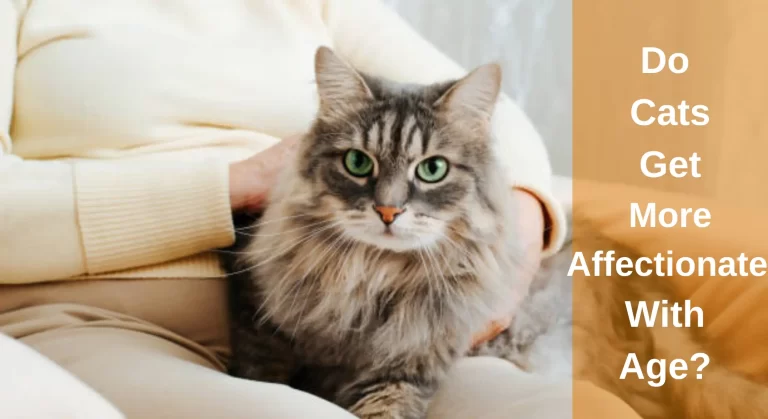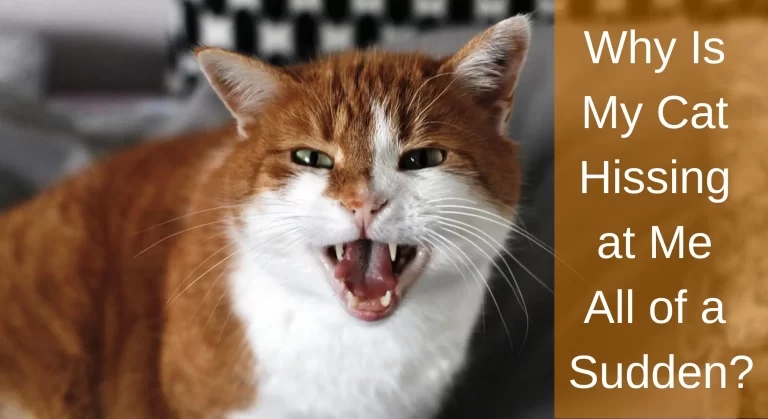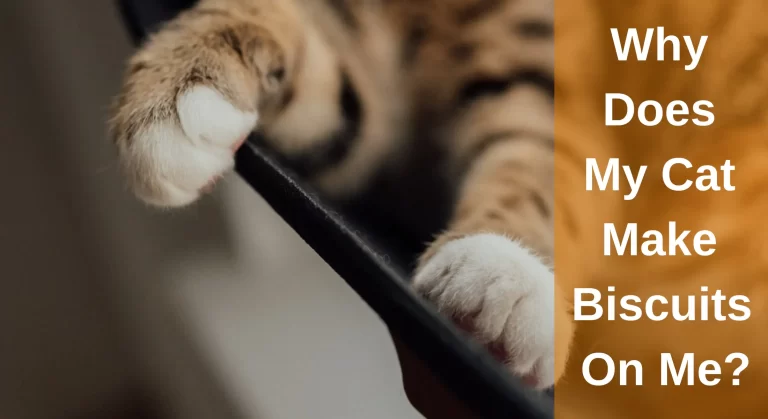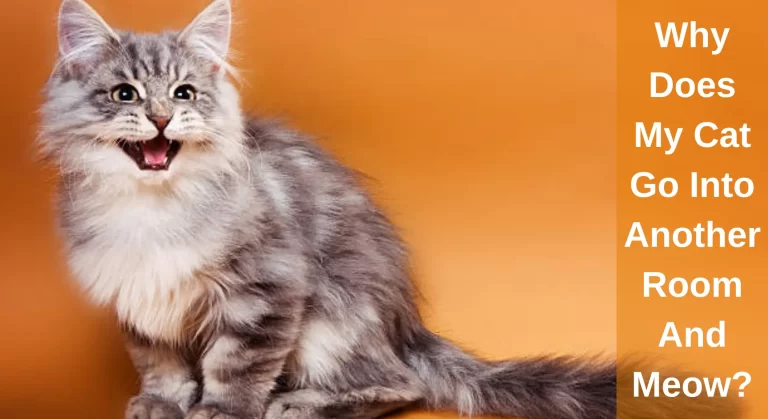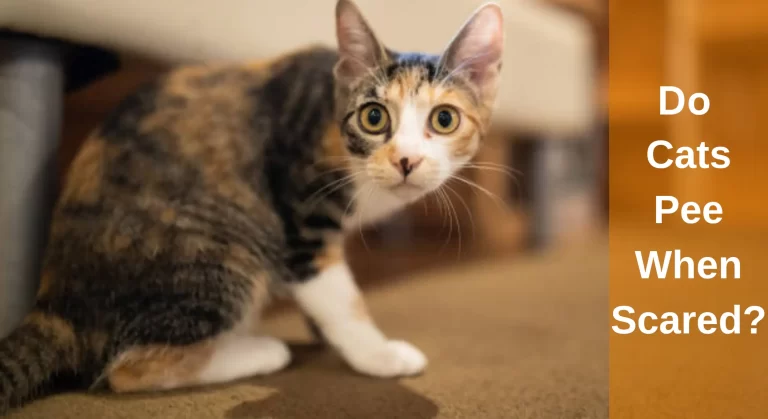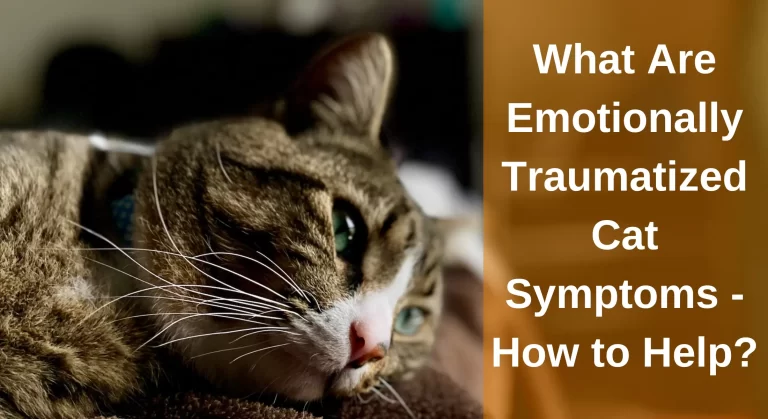Understanding the Reasons Behind Why My Pregnant Cat Keeps Meowing?
Cats are known for their vocal nature, using meowing as a means of communication. If your pregnant cat keeps meowing, you may be wondering about the reasons behind this behavior and how to address it. Pregnant cats called queens are very noisy, pregnancy can bring about various changes in a cat’s behavior.
Your pregnant cat may be meowing due to hormonal changes, seeking attention, seeking a safe place, discomfort or pain, nesting instincts, stress or anxiety, hunger or thirst, or underlying medical issues. It’s important to provide a safe and comfortable environment, regular meals, and veterinary check-ups to address this behavior and ensure her well-being.
In this article, we will explore the various aspects of a pregnant cat’s meowing and provide you with helpful insights and practical tips to ensure the well-being of your feline companion during this crucial stage. Let’s delve into the factors that contribute to excessive meowing in pregnant cats.
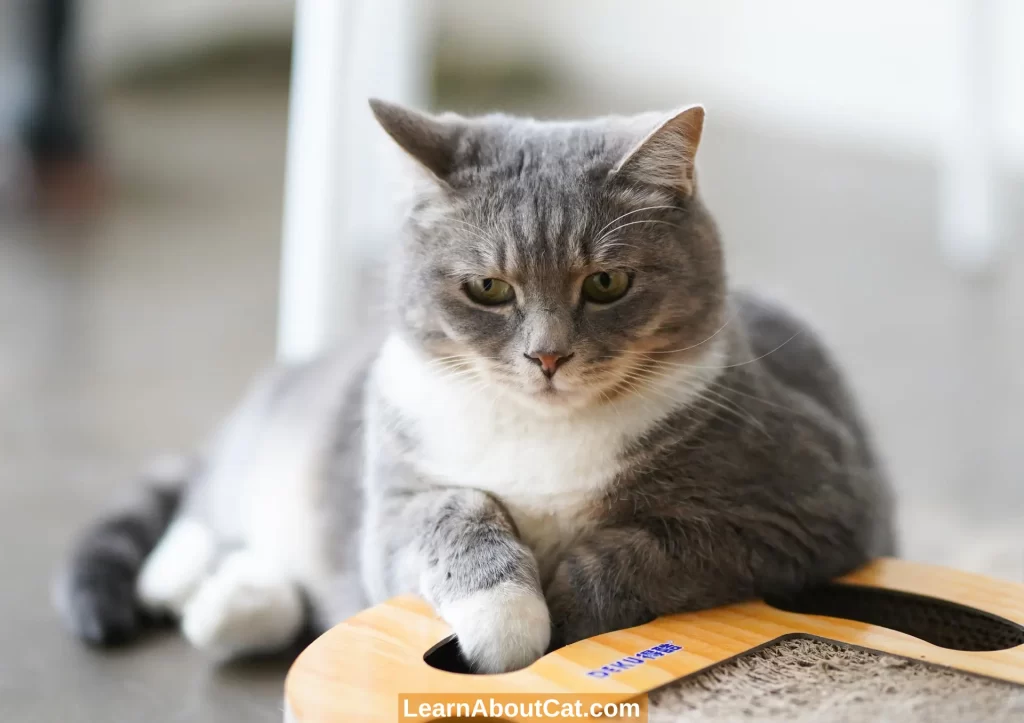
Understanding Feline Pregnancy
Before exploring the causes of excessive meowing in pregnant cats, it’s crucial to familiarize yourself with the basics of feline pregnancy. The gestation period in cats typically lasts around 63 to 65 days, during which various physical and hormonal changes occur. These changes play a significant role in the behavior of a pregnant cat, including her meowing patterns.
Also Read: Do Human Pregnancy Tests Work on Cats?
Is it Normal for Cats to Meow Excessively Before Giving Birth?
Yes, cats do meow a lot before giving birth. Behavioral changes in pregnant cats often serve as a clear indication of impending childbirth. As the cat approaches to labor, her meowing can undergo a noticeable transformation, resembling the vocalization of a female cat in heat. Labor begins between days 58 and 65 of pregnancy. Therefore, it is advisable to start observing your cat in the weeks leading up to her delivery.
Particularly for first-time pregnancies, pregnant cats may become more attentive and needy. The combination of anxiety and physical discomfort can lead them to meow more frequently, as the pressure on their glands and the internal changes cause them discomfort.
Additionally, pregnant cats may pant loudly and breathe deeply, indicating their body’s response to discomfort.
Cats have a gestation period of approximately 9 weeks. Therefore, if you know when your cat became pregnant and it aligns with the current timeframe, a pregnant cat meowing excessively could indicate that labor is near.
In the last 24-48 hours before delivery, you’ll observe your cat licking her genital and stomach region a lot. She is the cleaning and prepares the space for her babies. And if you notice pregnant pacing around and meowing more than usual as a way of communicating with you. It’s her way of letting you know that the kittens are on their way.
Find Out: Where Should Kittens Sleep at Night? – First Night
Reasons Why Does My Pregnant Cat Keep Meowing
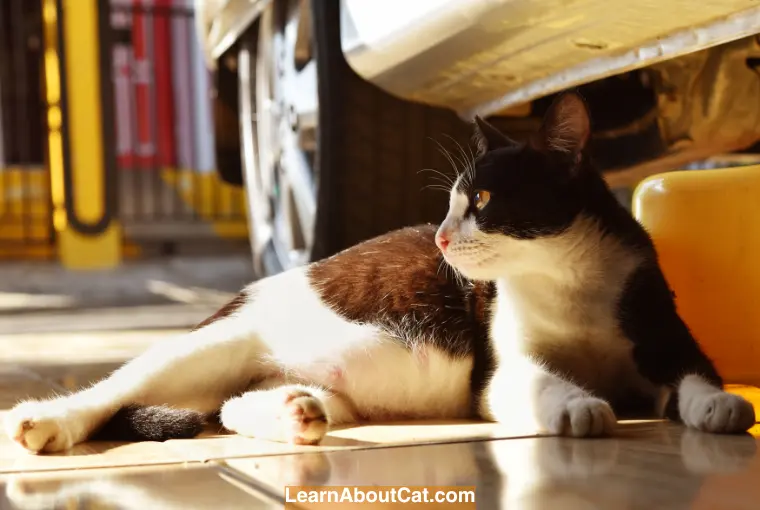
Hormonal Changes
One of the primary reasons a pregnant cat meows more frequently is due to hormonal changes occurring in her body. These hormonal fluctuations can affect her mood and make her more vocal. Meowing is a way for her to communicate her needs, express discomfort, or seek reassurance. Understanding this aspect can help you respond appropriately and provide the necessary support.
Nesting Instincts
As the due date approaches, a pregnant cat’s nesting instincts become stronger. She may meow persistently as she searches for the perfect spot to give birth and raise her kittens. This behavior is her way of requesting your assistance in finding a safe and cozy environment. By paying attention to her meowing and observing her preferences, you can help create an ideal space for her.
Discomfort or Pain
Just like humans, pregnancy can bring physical discomfort and pain to cats, especially as their bodies undergo significant changes. Excessive meowing may be a way for the cat to express physical discomfort such as backaches, swollen mammary glands, or pressure from the growing kittens. If you notice prolonged or severe meowing, it’s essential to consult a veterinarian for a thorough examination.
Anxiety or Stress
Pregnancy can sometimes cause anxiety and stress in cats. This may be due to hormonal changes, physical discomfort, or environmental factors. Excessive meowing can be a manifestation of their heightened emotional state. Creating a calm and stress-free environment for your pregnant cat can help alleviate her anxiety.
Seeking Attention or Comfort
Pregnancy can make a cat more dependent on human companionship and affection. Your pregnant cat’s meowing may be a way for her to seek attention or express her need for comfort and reassurance. By responding to her meows with gentle strokes, soothing words, and quality time together, you can alleviate her anxiety and strengthen your bond.
Restlessness
As the pregnancy progresses and the cat’s belly grows larger, finding a comfortable resting position can become challenging. Excessive meowing during this time may indicate the cat’s struggle to get comfortable. Providing suitable resting places with soft bedding can help alleviate their restlessness.
Preparing for Labor
Meowing is often a part of the nesting and birth preparation process for pregnant cats. The cat may meow more frequently as she readies herself for labor. Understanding the signs of impending labor, such as nesting behavior and changes in body temperature, can help you anticipate the birth.
Medical Conditions
Excessive meowing in pregnant cats could also be a sign of underlying medical conditions. It’s essential to be vigilant and monitor your cat’s overall health during pregnancy. If the meowing persists or is accompanied by other concerning symptoms, consult a veterinarian for a proper diagnosis and appropriate treatment.
Hunger or Thirst
Cats are well-known for being more vocal when they want something. Queens may want extra food since they require more calories than usual. Ensure that your cat has access to fresh water and provide her with a balanced and appropriate diet for her stage of pregnancy. Regular feeding schedules can help alleviate hunger-related meowing.
Individual Personality
Each cat has its own unique personality traits, which can influence its meowing behavior. Some cats may naturally be more vocal, while others may be quieter during pregnancy. Understanding your cat’s specific needs and temperament can help you provide appropriate support during this time.
Learn: When Can Kittens Leave Their Mom? Timeline for Weaning Kittens
Why is My Pregnant Cat Meowing Like In Heat?
There are several reasons why a pregnant cat may meow, including internal gland pressure. However, it’s important to understand that meowing alone is not a definitive sign of pregnancy.
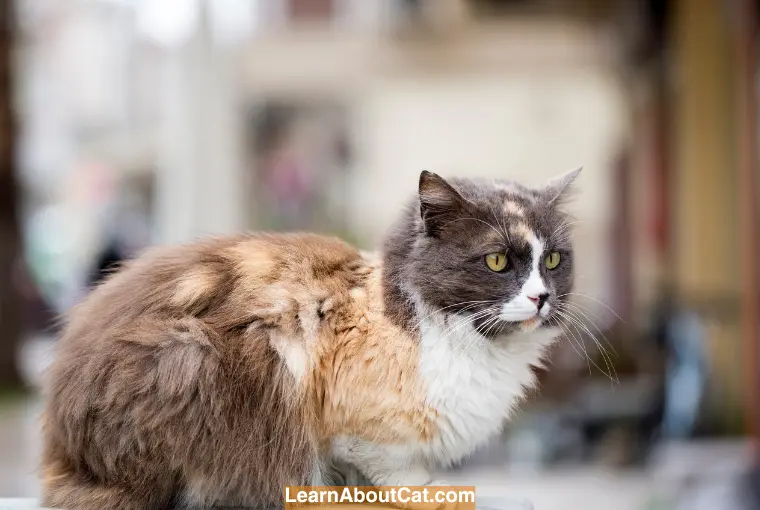
If a cat is pregnant, she will exhibit certain signs such as weight gain, increased appetite, and even milk production. Conversely, if these signs are absent, it indicates that she is not pregnant and will return to being in heat within a few weeks.
Behavioral changes in pregnant cats are common as they approach the time of giving birth. One noticeable change is a significant shift in their meowing patterns.
Their meow begins to resemble that of a female cat in heat. Additionally, heavy panting and loud breathing may indicate a natural instinct to groom their genitals.
The heat cycle of a cat typically lasts anywhere from ten to twenty days, during which yowling and rolling on the floor are common behaviors. However, once a cat becomes pregnant, these behaviors typically subside.
False pregnancies (pseudopregnancy) can occur in cats, emerging six to twelve weeks after exposure to heat and potentially lasting for months. One of the signs of pseudopregnancy is the development of mammary glands and milk production. Additionally, cats may exhibit behavioral changes, acting as if they are pregnant and preparing for delivery.
To determine if the cat is truly pregnant or experiencing a false pregnancy, your veterinarian will consider the medical history, perform a physical examination, and may use diagnostic tools such as x-rays or ultrasonography.
If your cat experiences repeated episodes of pseudopregnancy, spaying is often recommended.
Increased vocalization in a pregnant cat can stem from various reasons. It may be a way for her to seek attention, affection, and comfort. Additionally, the meowing could be a response to discomfort caused by the growing weight in her abdomen or false labor contractions.
Also Read: Can A Cat Get Pregnant While Nursing?
Why is My Pregnant Cat Keep Meowing at Night
If your pregnant cat is meowing specifically at night, it is important to understand that pregnancy alone may not be the cause. There could be other underlying issues to consider. Here are a couple of possibilities:
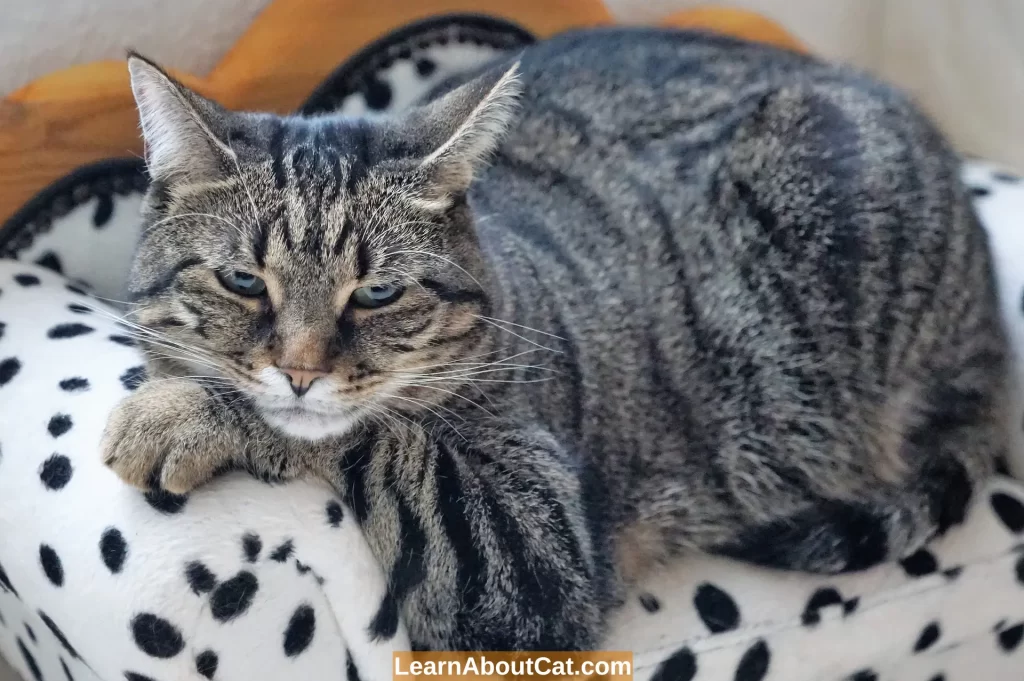
- Discomfort or Boredom: Sometimes, cats may meow at night due to discomfort or boredom. If cats are feeling unhappy, bored, or have not received enough mental and physical stimulation during the day, they may express their dissatisfaction through loud sounds at night. Engaging your cat in playtime and providing enrichment activities during the day can help alleviate boredom and reduce nighttime meowing. Also ensure that your cat has a comfortable and stimulating environment, with access to food, water, and toys.
Find Out: Why Do Cats Cry Like A Baby At Night? Reasons You Should Know
- Thyroid Hyperactivity or Renal Disease: If your cat meows regularly at night, you should have them checked out by a veterinarian. Excessive vocalization in cats, particularly at night, can suggest an overactive thyroid or renal illness. It is always advisable to consult with a veterinarian to determine the underlying cause of your pregnant cat’s nighttime meowing and to ensure their well-being.
- Nocturnal Instincts: Cats are crepuscular animals, meaning they are naturally more active during dawn and dusk. While most cats can adjust to their owners’ schedules, some may retain their innate nocturnal tendencies, leading to increased activity and meowing at night. Ensuring your cat receives adequate exercise and feeding them later in the evening to keep them satiated can help reduce nighttime meowing.
Check Out: Can a Neutered Male Cat Still Get a Female Pregnant?
Why is My Pregnant Cat Keep Meowing And Following Me
If your pregnant cat continues to meow and follow you, it is likely because she is seeking comfort, attention, and reassurance from you. As her delivery date draws near, it is common for her to experience increased anxiety and clinginess. This behavior can be attributed to hormonal changes, physical discomfort, and the anticipation of giving birth. Young cats are prone to anxiety, especially during their first pregnancy.

It is important to dedicate ample time to your pregnant cat and shower her with affection. Even though giving birth is a natural process for cats, it is still beneficial to provide them with support and care. While they have the ability to handle it independently, your presence and attention can contribute to their overall well-being during this significant time.
Cerebellar hypoplasia (CH) is a neurological disorder that causes cats to be unusually affectionate and attention-seeking, as well as to have difficulty with balance and coordination.
While having a loyal friend may be gratifying, some cat owners find excessive clinging and demanding behaviour to be aggravating.
Keep in mind that her behavior should normalize once she has given birth and settled into caring for her kittens.
Also, Check Out: I Got A New Kitten And My Cat Hates Me – What Do I Do?
Addressing a Pregnant Cat’s Meowing
Understanding the reasons behind your pregnant cat’s meowing is crucial, but it’s equally important to address her needs and provide a supportive environment. Here are some steps you can take to help your cat feel more comfortable during her pregnancy:
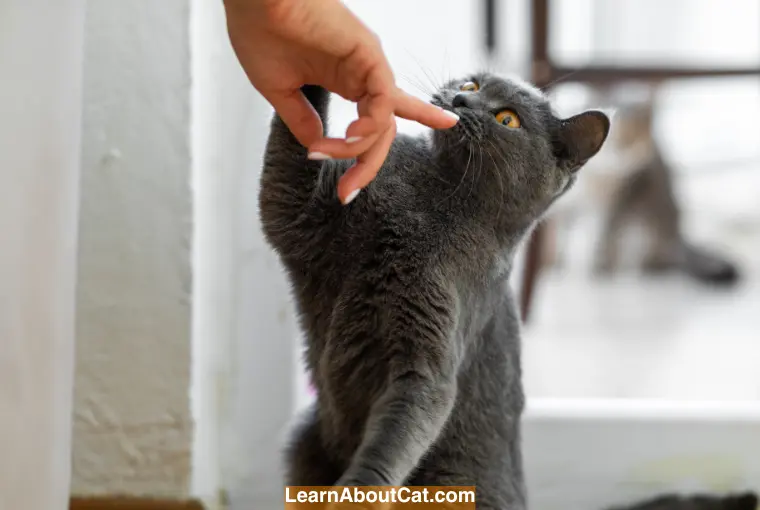
1. Provide a Safe and Comfortable Environment
Create a calm and secure space for your pregnant cat. Set up a quiet room or area where she can retreat, away from loud noises and disturbances. Make sure the temperature is moderate and provide a cozy bed or blanket for her to rest on. This can help reduce anxiety and excessive vocalization.
2. Offering Nesting Materials and a Designated Space
To fulfill her nesting instincts, provide your pregnant cat with appropriate materials such as soft towels, blankets, or even a nesting box. Allow her to explore different options and observe her preferences. Place the nesting materials in a secluded area where she feels secure.
3. Offer Regular Meals and Fresh Water
During pregnancy, a cat’s nutritional needs increase. Provide her with a high-quality, balanced diet suitable for pregnant or nursing cats. Adequate nourishment can minimize hunger-related meowing. Ensure fresh water is readily available at all times. Consult your veterinarian for specific dietary recommendations based on your cat’s needs.
4. Offering Companionship and Attention
Your pregnant cat may crave companionship and reassurance more than usual. Set aside dedicated bonding time with your cat, engaging in gentle play or petting sessions. This can help alleviate her need for attention and reduce excessive vocalization. However, be mindful of her comfort and avoid overstimulation, as this may cause stress.
Interesting Reading; The Ultimate Guide to – How Much to Feed a Kitten? Ketten Feeding 101
Frequently Asked Questions
How long do cats stay pregnant?
On average, a cat’s pregnancy lasts approximately 63 to 65 days, from the day of mating until the due date. However, this can vary slightly, ranging from 61 to 72 days.
Can excessive meowing during pregnancy harm the kittens?
Excessive meowing itself is unlikely to harm the kittens. However, if you notice other concerning symptoms or changes in your cat’s behavior such as stress or anxiety, which could indirectly impact the kittens’ development. Addressing the underlying causes of excessive meowing is essential to ensure the well-being of the pregnant cat and her offspring.
How long does excessive meowing typically last during pregnancy?
The duration of excessive meowing can vary among cats. However excessive meowing in pregnant cats is a common behavior that usually occurs for a temporary period lasting a few weeks. It can begin in the early stages of pregnancy and persist until the kittens are born. While in some cases, the meowing may subside after the birth of the kittens, it can also continue for a few additional weeks.
Should I be concerned if my pregnant cat suddenly stops meowing?
A sudden change in meowing behavior can be a cause for concern. If your pregnant cat stops meowing altogether or exhibits other unusual signs, it’s best to consult a veterinarian to rule out any potential complications.
Can I use any calming products or remedies to help reduce excessive meowing in my pregnant cat?
While there are calming products and remedies available, it’s essential to consult your veterinarian before using any on your pregnant cat. They can provide guidance on safe and appropriate options for your specific cat’s needs.
How can you tell if a cat is about to give birth?
Signs that your pregnant cat is close to giving birth include restlessness, nesting behaviors, a drop in body temperature, and contractions. Increased vocalization or meowing, along with the appearance of clear discharge, may also indicate that labor is imminent.
Why is my pregnant cat meowing so much and purring?
Meowing and purring are both ways for cats to communicate and bond with their owners. As your cat’s pregnancy progresses, she may be feeling more affectionate and may be meowing and purring more as a way to bond with you and her unborn kittens.
What are the most kittens that a cat can have in a litter?
The maximum number of kittens a cat can have in a litter is typically 12, although it’s not common. On average, cat litters consist of 4 to 6 kittens, with first-time mothers often having a smaller litter. The number of kittens in a litter can vary depending on factors such as the cat’s breed, age, and overall health. The largest recorded litter was in 1970, with a total of 19 kittens. However, it’s important to note that some of the kittens in that litter did not survive.
Final Words!
Having a pregnant cat that keeps meowing can be a mix of excitement and concern. Pregnant cats may exhibit increased meowing and changes in behavior due to hormonal fluctuations, discomfort, and the anticipation of giving birth. By understanding the reasons behind her meowing and addressing her needs, you can support her through this significant phase in her life.
Providing a safe and comfortable environment, monitoring her health, along with appropriate veterinary care, you can help minimize excessive meowing, and preparing for the arrival of the kittens will contribute to a positive experience for both your cat and her offspring.
Related Posts:
- Why Are Male Cats Around Pregnant Female Cats?
- My Cat Keeps Meowing And Rubbing Against Everything [Answered]
- My Cats Meow is Weak and Raspy – Why And How to Help?
- Why is My Cat Drinking a Lot of Water and Meowing? All You Need To Know
- Why Does My Cat Meow Loudly After Using the Litter Box? Top Reasons Explained
- Why Does My Cat Meow When I Sneeze? Top 9 Theories Explained
- The Ultimate Guide to How To Read Cat Body Language
Who is Isabella?
My name is Isabella, and I am a dedicated and knowledgeable cat enthusiast. With years of experience caring for cats and a deep love for felines, I made a mission to help other cat lovers navigate the challenges of cat ownership.

